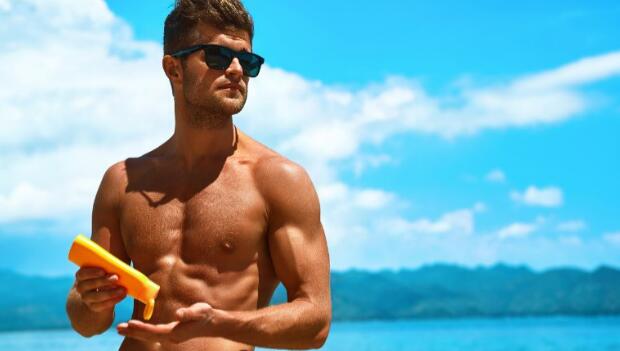
Summer is the perfect time to go outside and have fun. It's one of my favorite times of year because there are so many outdoor activities to choose from. Everything is more fun outside, whether you're swimming, running or cycling.
But the summer heat can be a problem if you're not careful, particularly in areas with extreme heat and humidity.
After experiencing the Badwater Ultramarathon (a 135-mile run through Death Valley) and the Marathon des Sables (a six-day, 152-mile endurance race through the Sahara Desert), I've learned a few things about exercising in the heat.
For me, the biggest problems were staying hydrated and maintaining my body's electrolytes and salt. When you sweat, your body loses not only water, but electrolytes and salt, too. This delicate balance of water and electrolytes is crucial to keep your body functioning properly.
If you don't drink enough water, you can get dehydrated and suffer from light-headedness and nausea. If not recognized, dehydration can even result in kidney failure and or, in extreme cases, death. However, if you drink too much water without replenishing your electrolytes, you can experience hyponatremia. This can lead to confusion, nausea, muscle cramps, seizures or even death in extreme cases.
You may not be racing in the desert, but there are some things to keep in mind when it comes to exercising in the heat:
-
The time of day is important. Unless you are training for an event that takes place in the daytime heat, avoid exercising from 10 a.m. to 3 p.m. It's the hottest part of day. Generally, the early morning is the best time to workout, especially if it's going to be scorcher that day.
Fitness Events Near You
-
Wear loose, light-colored. The lighter color will help reflect heat, and cotton material will help the evaporation of sweat. You may also want to try specially designed, "hi-tech" running shirts and shorts. They are often made from material meant to keep you cool.
-
Sunscreen is a must. I use SPF 45 just to be safe. It's important to protect your skin. You can get burned and suffer sun damage to your skin even on cloudy days.
-
Stay hydrated. Before you go out, drink a glass or two of water. Carry a bottle of water or even a hydration pack such as the CamelBak. Take a drink every 15 minutes, even when you're not thirsty. When you're done with your workout, have a few more glasses of water.
-
Replenish your electrolyte and salt intake while exercising. I like to use SUCCEED capsules--small, simple packs of sodium and electrolytes that keep my system in check.
- If you can, choose shaded trails or pathways that keep you out of the sun.
-
Check the weather forecast before you start your workout. If there's a heat advisory, meaning high ozone and air pollution, you might want to take your workout indoors. These pollutants can damage your lungs.
- Most importantly, listen to your body. Stop immediately if you're feeling dizzy, faint or nauseous.


